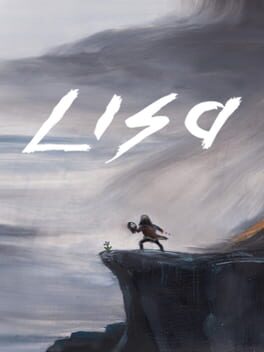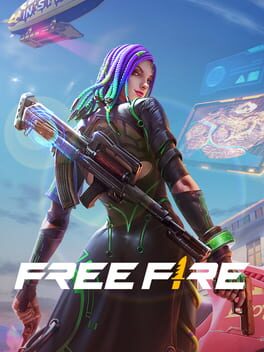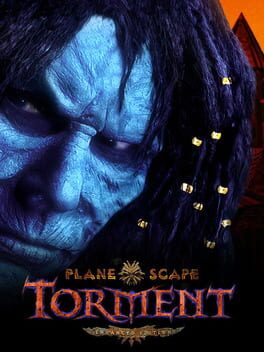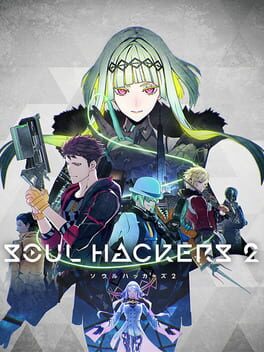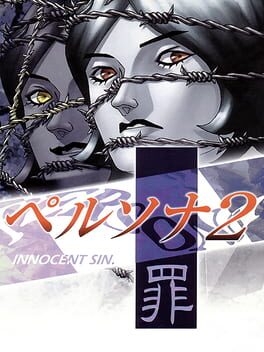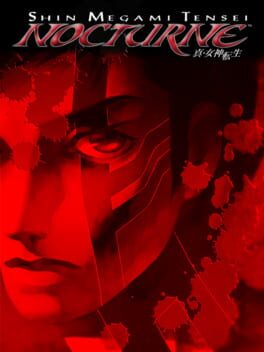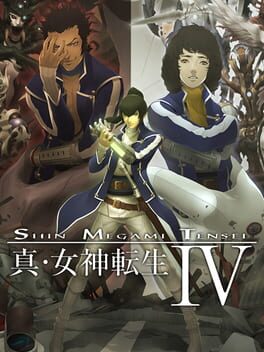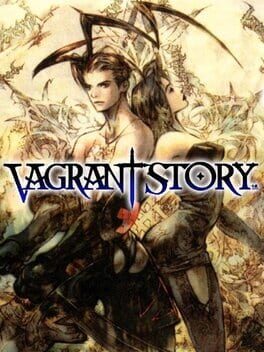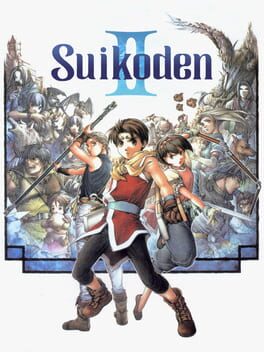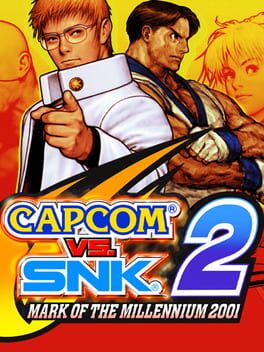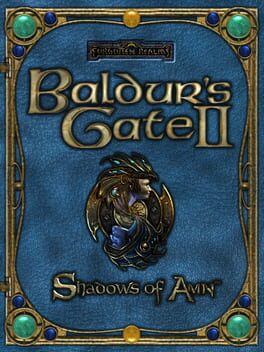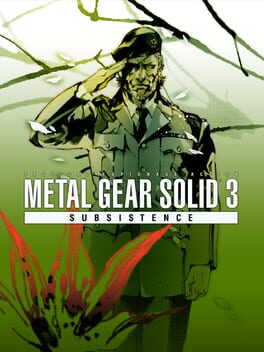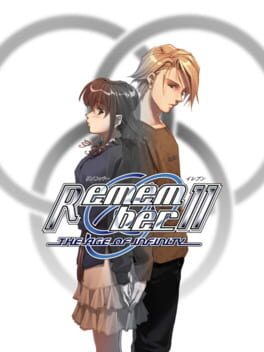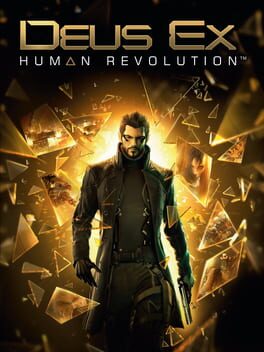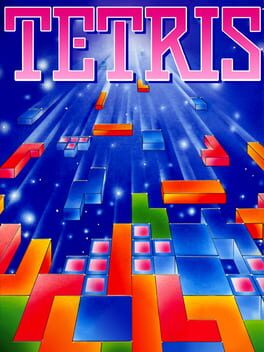kozzthi
22 reviews liked by kozzthi
Lisa: The Painful
2014
Esse jogo é aquela pessoa que parece inteligente por falar de vários temas pesados até que se mostra racista.
Esse jogo perdeu toda profundidade e se mostrou uma piada de mal gosto e perda de tempo no momento em que decidiu colocar uma "piadinha" racista. E não foi um personagem racista, foi o jogo em si. Desvalida tudo previamente dito e te engana com um diálogos vazios disfarçados de momentos de choque.
Uma pena, tinha potencial para ser inteligente.
Abandonei faz tempo, mas decidi falar agora devido a uma conversa que tive ontem.
Esse jogo perdeu toda profundidade e se mostrou uma piada de mal gosto e perda de tempo no momento em que decidiu colocar uma "piadinha" racista. E não foi um personagem racista, foi o jogo em si. Desvalida tudo previamente dito e te engana com um diálogos vazios disfarçados de momentos de choque.
Uma pena, tinha potencial para ser inteligente.
Abandonei faz tempo, mas decidi falar agora devido a uma conversa que tive ontem.
Omori
2020
Resident Evil 4
2023
There's no video-game like Resident Evil 4 for me, in the way it balances horror, survival mechanics, action, set pieces and a wonderful array of enemies that all gels in a way that it never feels like it's suffering from identity crisis.
The remake not just brings life-quality improvements, but is bold enough to make changes to the combat system, and map. Certain areas from Village, feels expanded with more complex layout, and also gives room for exploration which brings it slightly closer to the classic survival horror, but also being action-packed. Certain encounters being replaced with newer ones, and MOST of them works better here.
The story opts for a more realistic route, and the side characters like Ashley and Luis reaps the benefit of the changes, having stronger dynamic with Leon, and going through their own arcs, which makes both of them more humane as characters. Krauser is a better antagonist this time around with the added backstory, and Saddler despite his minimal screen time feels a lot more menacing as a villain. Leon is more consistent with the RE2 version, but has all the traits that made him "badass" action hero from the original. He too is given more depth, being traumatized by past events which ties to to RE2's story, and has development. One-liners are back, and even more than earlier and a lot of them land. However, I will always have a soft-spot for the original Leon. In the original, where the storytelling felt like it took a backseat to the gameplay, this is the best improvement I can ask for as a die-hard fan.
However, it's bread-and-butter is still the combat which is ridiculously fun. The parrying complements the flow really well, and when pulled at perfect timing, it rewards with a kick, and feels immensely satisfying. The Ganados are more challenging to take down too, they stagger a lot less, and acts even more aggressive as a "mob" which balances out the new mechanics. It coasts through one set pieces after another, and the cinematic presentation gives it a more grander, epic scale. Krauser's boss fight is a BIG highlight, and even I loved the re-designed fight with Bella sisters in a small room, with Ganados pouring in, making it a lot more scarier, and iconic than the original. It feels addicting as hell, that on finishing it for the first time, I immediately hopped back for 2nd run.
Unlike Dead Space (2023) which adds small yet smart changes, that it remains mostly faithful, improves on it, and even replaces the original for me, this works better as a "re-interpretation". It's not perfect, Salazar's more serious persona, his less screen time and his new boss fight doesn't feel as fun as I hoped, and the Castle section feels more memorable as an overall package in the original. One can pick apart small changes, but on a stand-alone basis, it feels distinct enough to feel like a separate title, and yet familiar enough to be called "Resident Evil 4". It's quality stands side by side with the original for me, not replacing it is the reason why for me this is now the gold standard of remakes.
The remake not just brings life-quality improvements, but is bold enough to make changes to the combat system, and map. Certain areas from Village, feels expanded with more complex layout, and also gives room for exploration which brings it slightly closer to the classic survival horror, but also being action-packed. Certain encounters being replaced with newer ones, and MOST of them works better here.
The story opts for a more realistic route, and the side characters like Ashley and Luis reaps the benefit of the changes, having stronger dynamic with Leon, and going through their own arcs, which makes both of them more humane as characters. Krauser is a better antagonist this time around with the added backstory, and Saddler despite his minimal screen time feels a lot more menacing as a villain. Leon is more consistent with the RE2 version, but has all the traits that made him "badass" action hero from the original. He too is given more depth, being traumatized by past events which ties to to RE2's story, and has development. One-liners are back, and even more than earlier and a lot of them land. However, I will always have a soft-spot for the original Leon. In the original, where the storytelling felt like it took a backseat to the gameplay, this is the best improvement I can ask for as a die-hard fan.
However, it's bread-and-butter is still the combat which is ridiculously fun. The parrying complements the flow really well, and when pulled at perfect timing, it rewards with a kick, and feels immensely satisfying. The Ganados are more challenging to take down too, they stagger a lot less, and acts even more aggressive as a "mob" which balances out the new mechanics. It coasts through one set pieces after another, and the cinematic presentation gives it a more grander, epic scale. Krauser's boss fight is a BIG highlight, and even I loved the re-designed fight with Bella sisters in a small room, with Ganados pouring in, making it a lot more scarier, and iconic than the original. It feels addicting as hell, that on finishing it for the first time, I immediately hopped back for 2nd run.
Unlike Dead Space (2023) which adds small yet smart changes, that it remains mostly faithful, improves on it, and even replaces the original for me, this works better as a "re-interpretation". It's not perfect, Salazar's more serious persona, his less screen time and his new boss fight doesn't feel as fun as I hoped, and the Castle section feels more memorable as an overall package in the original. One can pick apart small changes, but on a stand-alone basis, it feels distinct enough to feel like a separate title, and yet familiar enough to be called "Resident Evil 4". It's quality stands side by side with the original for me, not replacing it is the reason why for me this is now the gold standard of remakes.
Garena Free Fire
2017
Esse jogo é ruim de uma forma engraçada puta merda só serviu pra ajudar uma galera no brasil a sair da pobreza mas tirando isso é um jogo muito mal feito , joguei isso em 2018 quando só tinha free fire de clone de pubg no android e eu ate me diverti naquela época dava pra chamar o jogo de medíocre no máximo mas hoje em dia o jogo não passa de lavagem de dinheiro da garena pra arrancar grana de mulek de 12 anos, é pay to win, copia coisas de outros jogos na cara dura, não respeitam a própria comunidade que joga ainda essa porcaria e ainda engana com eventos mentirosos . simplesmente intankavel essa merda
Beaten: Apr 28 2022
Time: 15.6 Hours
Platform: Mac
I just replayed Planescape: Torment, and I’m glad it held up for me as well as it did. Not that I played it for the first time all that long ago, but I’ve played (and replayed) many more CRPGs since then, and it still made me feel something none of them quite hit. That being said, I don’t want or need to spill more ink in aimless praise of Torment. It’s good, fun, and timeless, and you should absolutely play it. Instead, I think I’ll ruminate on a recent facet of its legacy that I don’t think quite gets its due: the newish trend (ish) of hyperlocal adventure games.
The particular games I’m thinking of are Disco Elysium, Kentucky Route Zero, and Norco. All of these games, just like Torment, place more of a focus on an artsy bookishness, a strong prosal (like, prose-al. I don’t think it’s a word but) identity, than any specific mechanics beyond genre convention (KRZ/Norco with adventure game mechanics, Disco with RPG framing and mechanics). Torment absolutely focuses more on its D&D roots than any of those games engage with really tough puzzles or combat, but you can easily tell that it’s not about that.
That being said, I think Torment’s combat gets a lot more flak than it deserves tbh. It’s not as fleshed out in RPG combat as many of Black Isle’s or Obsidian’s or Bioware’s other games, but it’s still rooted in that same rtwp style. It’s clunky where the other ones are, it’s smooth (mostly) where the other ones are, and mostly it’s just pretty fun, if a bit on the easy side comparatively.
This is where Torment’s more obvious legacy comes from, games like Tyranny or Torment: Tides of Numenera. Talky RPGs with less tidy themes and slight less words for days, but also combat as a true component of gameplay. These games get away from the hyperlocality that played a part in making Torment feel so unique, though. That’s where those first three games really get it right, imo.
More than just being books with games attached, they’re incredibly deliberate in their literary themes and the way they explore a place, a city or region or highway. You see into every crack, every nook, just enough people’s personal problems that you get a sense that yes, this is a living, breathing, Place.
Purely speaking about RPGs, I think Baldur’s Gate 2 and Pillars of Eternity 2 also have *a place in them that’s almost this well fleshed out, but they also have many other smaller places in them. You’re exploring a whole countryside, an archipelago, that happens to have a big interweaving city inside of it. In these hyperlocal games, the city is the setting, it is* what you explore. Planescape ends with a few disconnected places, but 80% of the game is exploring Sigil, the City of Doors, and that’s what stuck with people.
There’s a third pillar of Torment’s influence, and that’s KOTOR 2. Influence is kind of a weak word though, instead it’s like a Star Wars themed remake of Torment fit inside of a stark-eyed takedown of everything Star Wars as a cultural idea ever held dear. But seriously, there’s even more direct parallels than I remembered lmao.
Anyways, yeah, Planescape: Torment has a wide ranging legacy with a high hit rate of games that are good to great to Amazing, and is maybe more important than the walls of text praising it would even have you believe!! If only chris avellone wasn’t a PoS aha
Time: 15.6 Hours
Platform: Mac
I just replayed Planescape: Torment, and I’m glad it held up for me as well as it did. Not that I played it for the first time all that long ago, but I’ve played (and replayed) many more CRPGs since then, and it still made me feel something none of them quite hit. That being said, I don’t want or need to spill more ink in aimless praise of Torment. It’s good, fun, and timeless, and you should absolutely play it. Instead, I think I’ll ruminate on a recent facet of its legacy that I don’t think quite gets its due: the newish trend (ish) of hyperlocal adventure games.
The particular games I’m thinking of are Disco Elysium, Kentucky Route Zero, and Norco. All of these games, just like Torment, place more of a focus on an artsy bookishness, a strong prosal (like, prose-al. I don’t think it’s a word but) identity, than any specific mechanics beyond genre convention (KRZ/Norco with adventure game mechanics, Disco with RPG framing and mechanics). Torment absolutely focuses more on its D&D roots than any of those games engage with really tough puzzles or combat, but you can easily tell that it’s not about that.
That being said, I think Torment’s combat gets a lot more flak than it deserves tbh. It’s not as fleshed out in RPG combat as many of Black Isle’s or Obsidian’s or Bioware’s other games, but it’s still rooted in that same rtwp style. It’s clunky where the other ones are, it’s smooth (mostly) where the other ones are, and mostly it’s just pretty fun, if a bit on the easy side comparatively.
This is where Torment’s more obvious legacy comes from, games like Tyranny or Torment: Tides of Numenera. Talky RPGs with less tidy themes and slight less words for days, but also combat as a true component of gameplay. These games get away from the hyperlocality that played a part in making Torment feel so unique, though. That’s where those first three games really get it right, imo.
More than just being books with games attached, they’re incredibly deliberate in their literary themes and the way they explore a place, a city or region or highway. You see into every crack, every nook, just enough people’s personal problems that you get a sense that yes, this is a living, breathing, Place.
Purely speaking about RPGs, I think Baldur’s Gate 2 and Pillars of Eternity 2 also have *a place in them that’s almost this well fleshed out, but they also have many other smaller places in them. You’re exploring a whole countryside, an archipelago, that happens to have a big interweaving city inside of it. In these hyperlocal games, the city is the setting, it is* what you explore. Planescape ends with a few disconnected places, but 80% of the game is exploring Sigil, the City of Doors, and that’s what stuck with people.
There’s a third pillar of Torment’s influence, and that’s KOTOR 2. Influence is kind of a weak word though, instead it’s like a Star Wars themed remake of Torment fit inside of a stark-eyed takedown of everything Star Wars as a cultural idea ever held dear. But seriously, there’s even more direct parallels than I remembered lmao.
Anyways, yeah, Planescape: Torment has a wide ranging legacy with a high hit rate of games that are good to great to Amazing, and is maybe more important than the walls of text praising it would even have you believe!! If only chris avellone wasn’t a PoS aha
Soul Hackers 2
2022
Take some of the fun aesthetics of the later Persona games and mix them with a bunch of questionable design decisions and a story that's very blah with a deus ex junkina of a reveal toward the end based on so very little reasoning.
Demon fusion feels half-assed, with four skills (upgradable to six EVENTUALLY) making every demon feel rather lackluster in their abilities. Sure, the restriction of choices should teach you to value your demons more, but there's so much overlap between various demons that it hardly feels like the endgame choices matter as much. And if you got yourself a demon you like before you unlocked your sixth skill slot? Well, hope you like teaching stuff to your Mitamas and fusing them with your demons, because that's about the only way you're going to be able to flesh out your skill set further.
I do like the inclusion of flavored Frosts, and I don't really care that much about the fusion system being completely basic (no moon phases to sweat or account for, no accidents, just vanilla fusing). I do take issue with the fact that it's ridiculously expensive to use the compendium and that performing sidequests to lower the cost only drops demon summoning costs by what...15 or 20%? Makes endgame mixing and matching fruitless because you don't want to spend all your money on just trying to hone a demon into something you'd specifically like.
Why? Because of COMP ingredient farming. Seemed like a great idea at first, as it makes all encounters seem fruitful when you're potentially getting ingredients needed for certain upgrades to your COMP system to make you more powerful. Except not every enemy drops an ingredient and ignoring any enemies in an area means you're likely missing out on ingredients necessary for some upgrades. So, why wouldn't you just fight every monster?
Because monster encounter rates are ridiculous to the point of exhaustion. Ringo moves slowly in her "run" and only Treasure Monsters actually try and flee from you, so you will spend most of the game slashing at monsters to knock them down and then fight them or go around them. And when I say most, I mean that in my 50 hours or so of playing, probably around 40-42 was spent slashing at monsters and engaging in combat. It's a genuine slog of the worst caliber. But if the level design is nice, doesn't that mitigate the issues, at least?
Except the level designs are poor. Early on, you're introduced to the Soul Matrix and you learn that you're going to be spending some time there if you want to be remotely equipped for the main areas of the game. There's a soul matrix area for each character with a number of floors that you can reach over time, though I won't get into how you unlock those floors. The floors for the soul matrix all look relatively the same, with some slight variations in how to progress in them that give a mild puzzle-feel to the area, but not in a clever or interesting way.
The actual areas of the game where the story progresses feel even more vanilla, with the exception of the final area of the game, which is a great time if you enjoy load screens and continuously backtracking to make progress.
I'd like to say that the boss fights make all the grinding and slogging worthwhile, but they don't stand out any bit more than previous SMT games do. Without the Press Turn system, there's no pressure on the player to sweat mistakes as hard, and especially no pressure to sweat demon choices, as being weak to something might cause you to take more damage, but does not give enemies more actions, so stress in the big fights is minimal. The Sabboth system seems like something that can be interesting, but it ultimately just culminates into getting all your Press Turn bonuses thrown into a stack that yields extra damage at the end of the turn. The Commander skills you eventually learn are alright, but outside of two particular ones, you can largely skip on most of them without bothering to scour for resources to unlock them.
I'd like to touch on the Soul Level system, but I'm trying to keep this relatively spoiler-free, so I'll just say that in regards to it, you can't really make any wrong choices (including during Hangouts), so go wild and unlock things in the direction that you want (unless you're going for platinum, in which case, go check a guide).
Sidequests are nothingburgers, the music is okay, everyone who isn't Milady is okay (Milady is great once you get past the "I'm a cold badass" bit) -- most of the game is just okay.
A friend I talked to that was also playing the game purchased the DLC (I don't know if she picked up the additional story level) and mentioned to me that regarding the costume DLC -- apparently, it only lets displays your equipped costumes in battle. Not during your constant running around or cutscenes, just battles. That sounds awful and if I recall correctly, it's like 13 USD for that, so even if you're interested in playing this, maybe consider passing on that particular DLC.
For reference, I played this on Normal all the way through. You can change your difficulty at any given point so if I'm being frank about getting the most enjoyment out of this by mitigating some of the frustration, I'd say to just play on Easy until you get to boss fights and then run it on Normal so you can at least get a feel for what the actual experience should be like without having to spend quite as much time grinding the regular demon battles.
Is it worth getting? If you're a diehard SMT fan, you're going to get it anyway. If you're looking at it as a curiosity, it feels closer in nature (to me, at least) to Digital Devil Saga. I'd say to absolutely wait on a sale for it, because the story and the content in general just simply are not worth it. There are so many better SMT games out there. Go play the first Soul Hackers, or any of the Persona games (maybe not the first). Go play NOCTURNE.
You can do better than this, because ATLUS could have done better than this.
Demon fusion feels half-assed, with four skills (upgradable to six EVENTUALLY) making every demon feel rather lackluster in their abilities. Sure, the restriction of choices should teach you to value your demons more, but there's so much overlap between various demons that it hardly feels like the endgame choices matter as much. And if you got yourself a demon you like before you unlocked your sixth skill slot? Well, hope you like teaching stuff to your Mitamas and fusing them with your demons, because that's about the only way you're going to be able to flesh out your skill set further.
I do like the inclusion of flavored Frosts, and I don't really care that much about the fusion system being completely basic (no moon phases to sweat or account for, no accidents, just vanilla fusing). I do take issue with the fact that it's ridiculously expensive to use the compendium and that performing sidequests to lower the cost only drops demon summoning costs by what...15 or 20%? Makes endgame mixing and matching fruitless because you don't want to spend all your money on just trying to hone a demon into something you'd specifically like.
Why? Because of COMP ingredient farming. Seemed like a great idea at first, as it makes all encounters seem fruitful when you're potentially getting ingredients needed for certain upgrades to your COMP system to make you more powerful. Except not every enemy drops an ingredient and ignoring any enemies in an area means you're likely missing out on ingredients necessary for some upgrades. So, why wouldn't you just fight every monster?
Because monster encounter rates are ridiculous to the point of exhaustion. Ringo moves slowly in her "run" and only Treasure Monsters actually try and flee from you, so you will spend most of the game slashing at monsters to knock them down and then fight them or go around them. And when I say most, I mean that in my 50 hours or so of playing, probably around 40-42 was spent slashing at monsters and engaging in combat. It's a genuine slog of the worst caliber. But if the level design is nice, doesn't that mitigate the issues, at least?
Except the level designs are poor. Early on, you're introduced to the Soul Matrix and you learn that you're going to be spending some time there if you want to be remotely equipped for the main areas of the game. There's a soul matrix area for each character with a number of floors that you can reach over time, though I won't get into how you unlock those floors. The floors for the soul matrix all look relatively the same, with some slight variations in how to progress in them that give a mild puzzle-feel to the area, but not in a clever or interesting way.
The actual areas of the game where the story progresses feel even more vanilla, with the exception of the final area of the game, which is a great time if you enjoy load screens and continuously backtracking to make progress.
I'd like to say that the boss fights make all the grinding and slogging worthwhile, but they don't stand out any bit more than previous SMT games do. Without the Press Turn system, there's no pressure on the player to sweat mistakes as hard, and especially no pressure to sweat demon choices, as being weak to something might cause you to take more damage, but does not give enemies more actions, so stress in the big fights is minimal. The Sabboth system seems like something that can be interesting, but it ultimately just culminates into getting all your Press Turn bonuses thrown into a stack that yields extra damage at the end of the turn. The Commander skills you eventually learn are alright, but outside of two particular ones, you can largely skip on most of them without bothering to scour for resources to unlock them.
I'd like to touch on the Soul Level system, but I'm trying to keep this relatively spoiler-free, so I'll just say that in regards to it, you can't really make any wrong choices (including during Hangouts), so go wild and unlock things in the direction that you want (unless you're going for platinum, in which case, go check a guide).
Sidequests are nothingburgers, the music is okay, everyone who isn't Milady is okay (Milady is great once you get past the "I'm a cold badass" bit) -- most of the game is just okay.
A friend I talked to that was also playing the game purchased the DLC (I don't know if she picked up the additional story level) and mentioned to me that regarding the costume DLC -- apparently, it only lets displays your equipped costumes in battle. Not during your constant running around or cutscenes, just battles. That sounds awful and if I recall correctly, it's like 13 USD for that, so even if you're interested in playing this, maybe consider passing on that particular DLC.
For reference, I played this on Normal all the way through. You can change your difficulty at any given point so if I'm being frank about getting the most enjoyment out of this by mitigating some of the frustration, I'd say to just play on Easy until you get to boss fights and then run it on Normal so you can at least get a feel for what the actual experience should be like without having to spend quite as much time grinding the regular demon battles.
Is it worth getting? If you're a diehard SMT fan, you're going to get it anyway. If you're looking at it as a curiosity, it feels closer in nature (to me, at least) to Digital Devil Saga. I'd say to absolutely wait on a sale for it, because the story and the content in general just simply are not worth it. There are so many better SMT games out there. Go play the first Soul Hackers, or any of the Persona games (maybe not the first). Go play NOCTURNE.
You can do better than this, because ATLUS could have done better than this.
Rumor or reality?
I'm extremely conflicted about how I feel about this game. Some obvious excellent elements are here with the extremely likable and relatable characters and incredibly ridiculous story I didn't expect barring some of the most tedious gameplay I have ever played in a japanese role playing game. I've managed to try both versions and with some outside advice went with the PSX version to complete despite being more tedious than I expected although playing the PSP version and completely brushing off the combat somehow didn't sit right with me.
The story and the characters are truly what redeems this game in my eyes are for a lot of people the important part of Persona 2 in general. The story goes in directions I really didn't expect and provide some meaning about the consequences of our actions being in our youth affecting who we are. The characters easily deserve spots as some of the developer's most well written with how they are portrayed and presented in the story and how everything ties together with one of the most bittersweet endings I've seen in a JRPG.
So in full honesty here, I've kinda been dreading playing this game. I can mostly say I am not a fan of old megaten gameplay barring the original Soul Hackers for being enough fast paced and not completely brainless in itself which seems to be a problem with how old megaten JRPGs seem to be. If you played the PlayStation Portable version, the general notion would be to play on easy and completely ignore this facet of the game which I was almost tempted to do but I didn't personally like the notion of skipping a facet of the game entirely and just rating the narrative elements which is good since it feels kinda disingenuous personally. Now the PSX version removes the easy factor and makes you have to actually learn the system itself but sad to see the system is extremely slow and not satisfying to me either. All of this encompassed with an extremely high encounter rate which made it hard to ignore this element of the game really bogs it down to me since while I can ignore bad gameplay with a great narrative/characters, there's a limit and this game reached it fairly early.
I still think people should really give this game a shot on either version they truly want since you'll be paying for it with your time if anything. Not gonna lie and say I'm glad I played the PSX version instead but I can say I'm personally proud for getting through it. Major gameplay grievances aside, Persona 2: Innocent Sin definitely deserves the praise it gets but I feel it should be put with an asterisk next to it since it feels like having to ignore the elephant in the room.
I'm extremely conflicted about how I feel about this game. Some obvious excellent elements are here with the extremely likable and relatable characters and incredibly ridiculous story I didn't expect barring some of the most tedious gameplay I have ever played in a japanese role playing game. I've managed to try both versions and with some outside advice went with the PSX version to complete despite being more tedious than I expected although playing the PSP version and completely brushing off the combat somehow didn't sit right with me.
The story and the characters are truly what redeems this game in my eyes are for a lot of people the important part of Persona 2 in general. The story goes in directions I really didn't expect and provide some meaning about the consequences of our actions being in our youth affecting who we are. The characters easily deserve spots as some of the developer's most well written with how they are portrayed and presented in the story and how everything ties together with one of the most bittersweet endings I've seen in a JRPG.
So in full honesty here, I've kinda been dreading playing this game. I can mostly say I am not a fan of old megaten gameplay barring the original Soul Hackers for being enough fast paced and not completely brainless in itself which seems to be a problem with how old megaten JRPGs seem to be. If you played the PlayStation Portable version, the general notion would be to play on easy and completely ignore this facet of the game which I was almost tempted to do but I didn't personally like the notion of skipping a facet of the game entirely and just rating the narrative elements which is good since it feels kinda disingenuous personally. Now the PSX version removes the easy factor and makes you have to actually learn the system itself but sad to see the system is extremely slow and not satisfying to me either. All of this encompassed with an extremely high encounter rate which made it hard to ignore this element of the game really bogs it down to me since while I can ignore bad gameplay with a great narrative/characters, there's a limit and this game reached it fairly early.
I still think people should really give this game a shot on either version they truly want since you'll be paying for it with your time if anything. Not gonna lie and say I'm glad I played the PSX version instead but I can say I'm personally proud for getting through it. Major gameplay grievances aside, Persona 2: Innocent Sin definitely deserves the praise it gets but I feel it should be put with an asterisk next to it since it feels like having to ignore the elephant in the room.
After II, you'd be forgiven for thinking the series had nowhere else to go. That was until Atlus had the genius idea to set it in a chaotic world in opposition to II's lawful one.
And it does feel chaotic. Powerful enemies can show up out of nowhere, might rules the day and you will feel overwhelmed. It's even reflected by the narrative, where you have to choose a philosophy to reshape the world, but all are morally gray and none of them are your own.
This game pioneered the Press Turn system which has been used by several games since. Of course you have to mention Kaneko's art and Meguro's soundtrack too. There's just so much to admire here.
The Persona series may be more accessible but Nocturne has it beat in sheer originality. I love, love, love this game.
And it does feel chaotic. Powerful enemies can show up out of nowhere, might rules the day and you will feel overwhelmed. It's even reflected by the narrative, where you have to choose a philosophy to reshape the world, but all are morally gray and none of them are your own.
This game pioneered the Press Turn system which has been used by several games since. Of course you have to mention Kaneko's art and Meguro's soundtrack too. There's just so much to admire here.
The Persona series may be more accessible but Nocturne has it beat in sheer originality. I love, love, love this game.
You need to understand that Shin Megami Tensei III: Nocturne is my favorite game of all time. There's precious few games I can say are as masterfully executed, especially in the JRPG genre, and indeed even within its own series. As a consequence, my expectations for Shin Megami Tensei IV were probably unreasonable from the start, but even after a repeat playthrough I find myself walking away with the same basic assessment I had on release: SMTIV simply lacks the edge and polish of its predecessor, and frequently feels torn between two schools of thought on what Megaten can and should be.
This is made apparent as soon as the player enters Naraku, the games "tutorial" dungeon. It's a trial by fire, where it's far too easy to get ambushed and decimated by overly aggressive enemies that seek to train the player through punishment. SMT has a reputation for being "difficult," but I would argue that they're actually quite fair, you just can't skate by with your brain shut off like you would in some other JRPGs. And yet, even coming back to it with many more Megaten games under my belt, Naraku still feels... off. This dungeon culminates in two boss battles: Minotaur and Medusa, both of which sport absurd health pools and dish out insane amounts of damage. Fusion is your friend, and you'll need to spend some time working out a team tailor made for these encounters, and even then you'll feel like you get by on the skin of your teeth. Nocturne has Matador, sure, but by contrast he exists to affirm the importance of press turns and affinities, whereas a sizeable amount of the Minotaur fight feels like dumb luck.
You'll likely game over a lot here, and quickly be introduced to a new mechanic where you can pay to resume the game at the point you died. This is handy if you haven't saved in a while, but considering you can save whenever you want, it's really quite pointless (unless you're going Fiend hunting, but that's not really worth getting into here.) Sitting through the game over screen just to load a save is interminable, and it's much faster to just close the game and start it again. However, after you claw your way through Naraku and descend into Tokyo proper, you probably won't need to worry about it as much, because the game suddenly, on a dime, becomes a cakewalk.
It really does feel like someone somewhere messed up some numbers. The boss encounters following Minotaur and Medusa have, like, a third of their health. You also get a lot more options for what demons you can recruit and consequentially fuse, which makes it much easier to turn the tables and start steamrolling the game. Your victories post-Naraku don't feel earned, and this in turn only validates any notion you had of the early game being unfair. SMTIV never finds its middle ground, and as such lacks the finely balanced challenge of prior games. It is both discouraging for new players with its horrendous opening, and borderline dull for returning fans.
This lack of balance is present in the games visuals as well. Demon designs were sourced out to several different artists, but there doesn't appear to have been any effort made to keep designs cohesive. This results in a lot of decidedly un-SMT designs which are wonderfully grotesque but at odds with returning art from Nocturne. And then there's just a ton of low quality art that is blurry as hell. The main cast of characters, conversely, feel like they should occupy the same space as one another, and while not all of their designs land with me personality it is at least something to latch onto when the game is otherwise giving me aesthetic whiplash.
The player is given a slew of side quests to fulfill as they explore Tokyo and Mikado, the game's primary locations. Navigation between the two is handled entirely differently. Mikado can be explored by simply selecting where you want to go from a menu, whereas Tokyo serves as a proper overworld map. Between the two, I favor picking from a menu. Not because I think it's inherently better, but because Tokyo is just a pain to navigate. There's very few open areas, movement is mostly restricted to roads that are laid out like a maze. Anytime I got a quest that asked me to find like, five piece of a demon or something, I could feel my body physically rejecting the thought of fulfilling it. When you're in dungeons, enemies appear in the world like they do in Persona or SMTV. I have nothing against this, though I do think it's a little odd that demons who are drastically underleveled still chase you down.
On both playthroughs I got the neutral route, the first time intentionally and the second time entirely by accident. Without getting too deep into spoilers, the protagonist awakens after a brief absence to find the world isn't quite how he left it, and the forces of chaos and light are in the final stages of preparing their armies for an all out assault that will forever change Tokyo and Mikado. The tension is palpable, but before you round up your crew and put an end to the old gods and their eternal war, you need to do a bunch of boring fetch quests! Hooray!
The pacing dies on the spot, and frankly I could not be bothered by that point to see my second playthrough to the end. Just a big "no thanks" from me. I evidently forgot about this after my first playthrough, totally blocked it from my memory. I'm sure six years from now I will repeat this process all over again. This is my curse.
The story is fine, at least! I like the characters well enough. Walter is a good lad, though I do think his immediate adoption of "might makes right" is a bit silly, they don't build up to it well. But it's fine... it's fine! It was the only part of the game I found myself getting invested in. It's fine!
The music is also incredible. The boss and mid-boss themes sound appropriately strange and vicious, and the rest of the soundtrack does an equally good job of setting its own identity from other SMT soundtracks. It really hits its stride when you get to Tokyo, and the tracks used for the end bosses do a good job conveying how much is on the line.
SMTIV is the one mainline SMT that I outright dislike. Most of my playthrough was spent questioning the games balance, art direction, and wondering what development was actually like. I'm sure there's a story there, because this definitely feels like a step down in quality for Atlus, and a game that I liked no more on my second playthrough than the first. If anything, I liked it less.
This is made apparent as soon as the player enters Naraku, the games "tutorial" dungeon. It's a trial by fire, where it's far too easy to get ambushed and decimated by overly aggressive enemies that seek to train the player through punishment. SMT has a reputation for being "difficult," but I would argue that they're actually quite fair, you just can't skate by with your brain shut off like you would in some other JRPGs. And yet, even coming back to it with many more Megaten games under my belt, Naraku still feels... off. This dungeon culminates in two boss battles: Minotaur and Medusa, both of which sport absurd health pools and dish out insane amounts of damage. Fusion is your friend, and you'll need to spend some time working out a team tailor made for these encounters, and even then you'll feel like you get by on the skin of your teeth. Nocturne has Matador, sure, but by contrast he exists to affirm the importance of press turns and affinities, whereas a sizeable amount of the Minotaur fight feels like dumb luck.
You'll likely game over a lot here, and quickly be introduced to a new mechanic where you can pay to resume the game at the point you died. This is handy if you haven't saved in a while, but considering you can save whenever you want, it's really quite pointless (unless you're going Fiend hunting, but that's not really worth getting into here.) Sitting through the game over screen just to load a save is interminable, and it's much faster to just close the game and start it again. However, after you claw your way through Naraku and descend into Tokyo proper, you probably won't need to worry about it as much, because the game suddenly, on a dime, becomes a cakewalk.
It really does feel like someone somewhere messed up some numbers. The boss encounters following Minotaur and Medusa have, like, a third of their health. You also get a lot more options for what demons you can recruit and consequentially fuse, which makes it much easier to turn the tables and start steamrolling the game. Your victories post-Naraku don't feel earned, and this in turn only validates any notion you had of the early game being unfair. SMTIV never finds its middle ground, and as such lacks the finely balanced challenge of prior games. It is both discouraging for new players with its horrendous opening, and borderline dull for returning fans.
This lack of balance is present in the games visuals as well. Demon designs were sourced out to several different artists, but there doesn't appear to have been any effort made to keep designs cohesive. This results in a lot of decidedly un-SMT designs which are wonderfully grotesque but at odds with returning art from Nocturne. And then there's just a ton of low quality art that is blurry as hell. The main cast of characters, conversely, feel like they should occupy the same space as one another, and while not all of their designs land with me personality it is at least something to latch onto when the game is otherwise giving me aesthetic whiplash.
The player is given a slew of side quests to fulfill as they explore Tokyo and Mikado, the game's primary locations. Navigation between the two is handled entirely differently. Mikado can be explored by simply selecting where you want to go from a menu, whereas Tokyo serves as a proper overworld map. Between the two, I favor picking from a menu. Not because I think it's inherently better, but because Tokyo is just a pain to navigate. There's very few open areas, movement is mostly restricted to roads that are laid out like a maze. Anytime I got a quest that asked me to find like, five piece of a demon or something, I could feel my body physically rejecting the thought of fulfilling it. When you're in dungeons, enemies appear in the world like they do in Persona or SMTV. I have nothing against this, though I do think it's a little odd that demons who are drastically underleveled still chase you down.
On both playthroughs I got the neutral route, the first time intentionally and the second time entirely by accident. Without getting too deep into spoilers, the protagonist awakens after a brief absence to find the world isn't quite how he left it, and the forces of chaos and light are in the final stages of preparing their armies for an all out assault that will forever change Tokyo and Mikado. The tension is palpable, but before you round up your crew and put an end to the old gods and their eternal war, you need to do a bunch of boring fetch quests! Hooray!
The pacing dies on the spot, and frankly I could not be bothered by that point to see my second playthrough to the end. Just a big "no thanks" from me. I evidently forgot about this after my first playthrough, totally blocked it from my memory. I'm sure six years from now I will repeat this process all over again. This is my curse.
The story is fine, at least! I like the characters well enough. Walter is a good lad, though I do think his immediate adoption of "might makes right" is a bit silly, they don't build up to it well. But it's fine... it's fine! It was the only part of the game I found myself getting invested in. It's fine!
The music is also incredible. The boss and mid-boss themes sound appropriately strange and vicious, and the rest of the soundtrack does an equally good job of setting its own identity from other SMT soundtracks. It really hits its stride when you get to Tokyo, and the tracks used for the end bosses do a good job conveying how much is on the line.
SMTIV is the one mainline SMT that I outright dislike. Most of my playthrough was spent questioning the games balance, art direction, and wondering what development was actually like. I'm sure there's a story there, because this definitely feels like a step down in quality for Atlus, and a game that I liked no more on my second playthrough than the first. If anything, I liked it less.
5 lists liked by kozzthi
